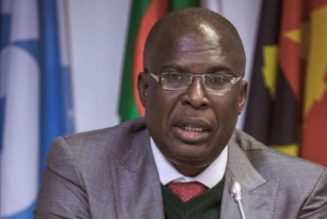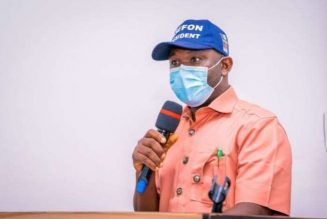
Africa is heading into a third wave of coronavirus infections as the least-inoculated continent faces a shortage of vaccines.
African nations reported 94,000 new cases in the week through June 6, a 26% increase. South Africa announced the most new cases, followed by Tunisia, Africa Centres for Disease Control & Prevention Director John Nkengasong said in an online briefing Thursday.
“Fourteen or so of our member states are now heading toward the third wave, and aggressively so,” he said. “It really highlights the need for us to roll out vaccines at speed and at scale.”
Only 2.8% of Africa’s population is inoculated, compared with a global average of 14.5%, according to Africa CDC and Bloomberg Economics data. The program has slowed because of interruptions to supply from India, where most of the AstraZeneca doses the region was scheduled to receive are manufactured, along with slow distribution of shots received.
The World Health Organization on Thursday urged a “massive effort” to secure at least 225 million coronavirus vaccine doses by September to meet a global goal of inoculating at least 10% of the continent’s population.
“Our early projections indicate that without a significant boost in the availability of vaccines, only seven African countries will achieve this goal,” WHO Regional Director for Africa Matshidiso Moeti said in an online briefing.
U.S. President Joe Biden’s plan to purchase and donate half a billion Pfizer Inc. vaccines to 92 low and lower-middle income countries, including in the African Union, is a “monumental step forward,” Moeti said. She also welcomed the MasterCard Foundation’s announcement of a $1.3 billion donation to support Africa’s inoculation program.
“These are the kinds of partnerships needed to bring an end to the pandemic,” she said.
The Delta variant that has devastated India is currently “getting a hold on the continent,” with 13 African countries now showing this strain, Nkengasong said. Still, Africa CDC doesn’t yet have the epidemiological data to show the mutant is driving new infections, “so we continue to analyze the situation and see if there is a correlation between that variant and the third wave.”










